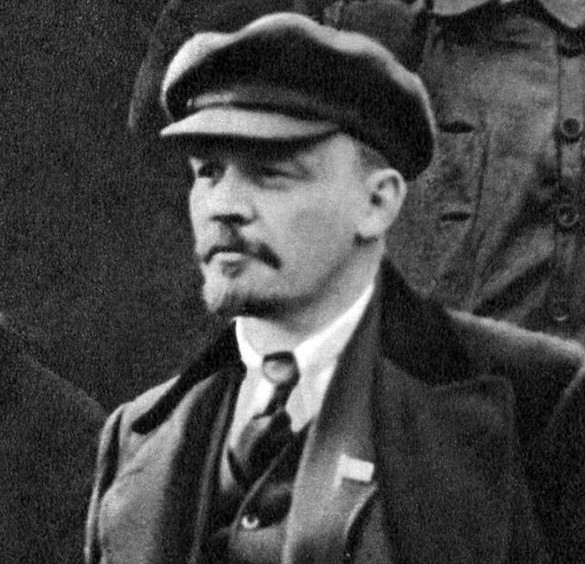A certainly infamous figure which is dreaded by most Marxists-Leninists, with good reason at least. However, one thing that the dialectical principle teaches us is that to overcome something, its useful, positive, or correct aspects must be preserved.
I became less and less against the historical figure of Trotsky, but I remain anti-Trotskyist, because there are a big difference between Trotsky and Trotskyism. What made me change my mind over time was realizing that I have actually never read anything by Trotsky, I still don’t know his biography, but it’s a fact that he was very relevant in the October Revolution.
After reading the first two chapters of The revolution betrayed, I noticed how Trotsky’s 1936 analysis on the relationship between the peasantry and the state industry under the NEP was correct up to the academic standards of E. H. Carr (1950–1978),[1] Charles Bettelheim (1978)[2] and R.W. Davies (1980)[3], using statistical data available at their time. I don’t know about Trotsky’s conclusion on the character of the Soviet state because I haven’t read his work in full.
Much like Stalin, Trotsky is a very contradictory figure, so it’s very hard to simplify them by picking a side and denying the usefulness of the other. It’s a dogmatic mentality that we should strive to avoid at all costs, because the truth is the whole, not the single perspective we pick. The intention of this post is a call for us to overcome these barriers that hamper our understanding of the past, and therefore, the present. I have noticed how many Marxists-Leninists are able to read works produced by bourgeois academics, yet preserve a hatred for certain figures (such as Trotsky, Bukharin, Khrushchev, etc.) so big that they cannot understand the historical place of them.
14 volumes of A history of Soviet Russia, published between the years of 1950 and 1978. ↩︎
Charles Bettelheim (1978). Class struggles in the USSR, second period: 1923–1930. New York: Monthly Review Press. ↩︎
R. W. Davies (1980). The socialist offensive: the collectivisation of Soviet agriculture, 1929–1930. The industrialisation of Soviet Russia, vol.1. Palgrave Macmillan ↩︎


Intro
Comrade Forte’s main points are as follows: to understand History we must take into account all points of view avoiding a dogmatic stance(In this case examining all data that we have on the subject), Certain political figures are not dealt with in a historical way instead they removed from their place in history and lampooned(ie Stalin, Trotsky, and others), and finally taking the prior two conditions(ie taking a dogmatic stand and removing figures from their place in history) together a distorted version of history is formed which does not allow us to make a proper analysis of history.
History and Historians
History is not written on the basis of neutrality(for the majority of past historians) instead many historians have distorted the past to fit their narrative. . History is reliant upon primary documents and in the case of the USSR, these documents were not widespread for much of its existence( the Smolensk Archives are an exception to this case) hindering the ability of many western historians to write about the USSR. A second hindrance to a majority of western historians(Bouriogse) was ideology in that many took a stand with capitalism meaning that whatever they produced it had to be anti-communist. A third note is that even when some historians have the primary documents which they cite in their books they can still distort them 1. They can ignore the documents entirely. 2. They can twist the documents into saying whatever the historian wants it to say. The point here is that historical texts must be analyzed thoroughly in order to grasp some sort of truth from them(Go through the footnotes).
On Trotsky
(for the following three sections a majority of the links go to lib gen only one goes directly to the pdf in this case Stalin: The History and Critique of A Black Legend)
Grover Furr http://library.lol/main/B66B6C49F1B1B5B402183EA67D61B063 http://library.lol/main/C7EAAE7AA0717F7D9D8AE0E9298B08F3 Leon Trotsky http://library.lol/main/BC44627512F68518F0E4EC5DAFF6B7EA Robert Service http://library.lol/main/1DD3AAE7A7F29634009EF43EAFA183E0 Isaac Deutscher http://library.lol/main/1097560E7AC6703CA03AC02622360490 http://library.lol/main/C2A33CB6EF97C3EC9786E66653690B1A http://library.lol/main/A140050CDB53DF85804EECE1C160D1A7
Side note in my first comment to this post there are more links go check those out as well Also not all of the people here are marxists so as said prior be thorough with your reading.
On Stalin
Domenico Losurdo https://static1.squarespace.com/static/5ed33bcd368e221ec227cacd/t/5ee39a1731781f54f197c5f7/1591974443348/Domenico+Losurdo+-+Stalin.pdf
J. Arch Getty And Oleg V. Naumov http://library.lol/main/A87ECBB483BF27F182F31626527035A6 Furr http://library.lol/main/2B638AADAA6C7F15A94C36553DAB6D7B http://library.lol/main/0FA2BE18E21402199E0A70CA6ADB223E Stephen Kotkin http://library.lol/main/CB123EEE591D9D517013BF2464994C90 http://library.lol/main/1734618CA86072E888DE0CE11A55F13F Robert Conquest http://library.lol/main/286D63325E0FB040D21BEAB1F05F92D1 Ludo Martens http://library.lol/main/BF404C933433462605E47B4B6FF0ED44
On the USSR
Furr http://library.lol/main/10D697104A7831F0301673DA86AB2536 E. H. Carr http://library.lol/main/942D5E2DD58354BFE5734ED11E8A073F Conquest http://library.lol/main/F53C87FC7A83C0E0C8C9CBB11BFC2924 http://library.lol/main/38D2E8E59DFA7E8E25B1B168F223205F John Reed http://library.lol/main/4956C2872198131D25DB5DD3B1A486F7 Peter Kenez http://library.lol/main/FF7711111680035F0AD1811403AE0083 Harpal Brar http://library.lol/main/FE18644FF490E4FC243BD40DF4F9500C Albert Szymanski http://library.lol/main/8293F7494353EBD7739762E71EDFC04B William B. Bland http://library.lol/main/D3E501B8E3FD05113DEA086B1CEE9AAF
Final Thoughts
The prior three sections are not an exhaustive list of books that deal with the particular subject area. The point here is to examine the evidence within the text and compare it to the evidence provided from the other texts to see what the historians are ignoring or did not have the documents to look over. In any case remember comrades, the point of the whole post and this comment is to stimulate an examination not just of Trotsky, Stalin, and the USSR, but of all socialist experiments and their leaders through reading secondary sources and interrogating the primary sources that are used as a base. (Read through the works Forte has in their post as well)
I hope this helps in some way, comrades.